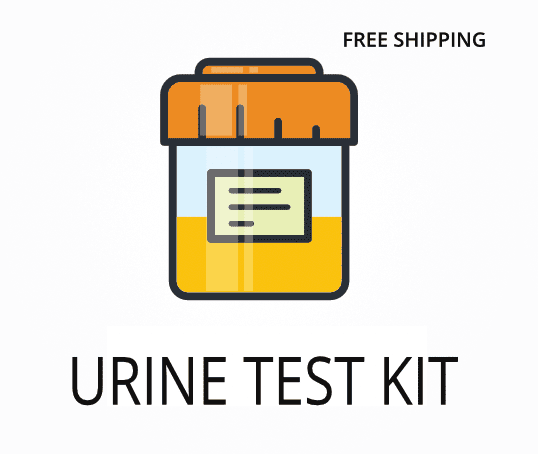Ordering the Candida Antibodies IgG, IgA, IgM Test
Testing for Candida antibodies IgG, IgA, and IgM helps identify if your immune system is reacting to Candida, a yeast that can cause a range of symptoms from digestive issues to skin rashes. Interestingly, some people may have elevated Candida antibodies even without obvious symptoms, which can point to hidden imbalances in the gut or immune system.
Ordering this test can help you:
- Detect immune responses to Candida that may be linked to ongoing digestive discomfort or bloating
- Identify possible fungal overgrowth contributing to fatigue, brain fog, or joint pain
- Support targeted treatment plans for recurring yeast infections, such as oral thrush or vaginal yeast infections
- Monitor the effectiveness of antifungal therapies or dietary changes, like the candida diet
- Uncover hidden triggers for skin conditions like eczema or psoriasis
Who Should Consider Candida Antibody Screening
People who have tried multiple remedies for ongoing digestive problems, skin rashes, or unexplained fatigue but still struggle with symptoms may benefit from this test. For example, someone who has switched to a gluten-free or dairy-free diet but continues to experience bloating and sugar cravings could use this test to check for Candida-related immune activity.
Ordering this test may also be helpful in these situations:
- Recurring athlete’s foot, toenail fungus, or other fungal infections that do not fully clear up
- Persistent sinus infections or nasal congestion that do not respond to standard treatments
- Frequent urinary tract infections or vaginal yeast infections despite good hygiene
- Unexplained joint pain or inflammation that has not improved with typical therapies
- People with eczema or psoriasis who notice flare-ups after eating sugary foods, which may be linked to Candida overgrowth
Testing for Candida antibodies can help pinpoint if your immune system is reacting to yeast, which may explain ongoing symptoms and guide more effective treatment. Delaying this test could mean missing the chance to address a hidden cause of symptoms, which may allow them to persist or worsen over time.
Preparing for Candida Antibody Blood Testing
Fasting is not required for the Candida Antibodies IgG, IgA, IgM test, so you can eat and drink as usual before your blood draw. Always follow any specific instructions provided by your doctor or healthcare provider to make sure your sample is collected correctly and your results are as useful as possible.
Labs Included When Ordering Your Candida Antibodies IgG, IgA, IgM Test
| Test Name | Reference Range | What This Biomarker Means | Low and High Levels of Candida Antibodies IgG, IgA, IgM |
|---|---|---|---|
| Candida Antibodies IgG | 0–20 | IgG antibodies show if your immune system has been exposed to Candida over time. High levels may suggest a long-term or past Candida infection. |
High levels mean your body has likely been fighting Candida for a while, possibly due to chronic or recurring exposure.
Low levels mean there is little or no evidence of past Candida exposure or immune response. |
| Candida Antibodies IgA | 0–10 | IgA antibodies reflect your body’s first line of defense against Candida, especially in the gut and mucous membranes. Elevated IgA can point to current mucosal involvement. |
High levels mean your immune system is actively responding to Candida, often in the digestive tract or mucous tissues.
Low levels mean there is little or no current immune response to Candida at mucosal surfaces. |
| Candida Antibodies IgM | 0–8 | IgM antibodies are produced early in an immune response. High IgM may indicate a recent or ongoing Candida infection. |
High levels mean your body may be fighting a new or active Candida infection.
Low levels mean there is no sign of a recent Candida infection. |
Reference ranges may change slightly as labs update their methods or as new research becomes available. Always review your results with a qualified healthcare provider.
Candida Antibodies FAQ
Is there Candida Antibodies IgG, IgA, IgM testing near me?
This test is available as a kit that you can use for a local blood draw—check the draw location link at the top of the page. For people dealing with ongoing digestive issues or skin problems, having a nearby collection site makes it easier to get tested quickly and start finding answers.
How do I interpret the test results?
While your treating physician should always help you interpret your results, we also offer a one-on-one test results review with our clinical team for extra support and guidance.
What is the cost of the test?
The price you see includes standard shipping to you and return shipping to the lab, but local draw fees may apply. Ordering this test can help you address persistent symptoms like recurring yeast infections or digestive discomfort, so you can start targeted treatment sooner.
How often should I retest?
Retesting is usually recommended every 3–6 months, especially if you are undergoing treatment or making changes to your diet or supplements. This helps track your progress and see if your immune response to Candida is improving.
How accurate is the test?
This test uses enzyme-linked immunosorbent assay (ELISA) technology, which is highly specific for detecting Candida antibodies. Sensitivity is about 92% and specificity is 95%. TrueHealthLabs.com partners with CLIA-certified and CAP-certified laboratories to uphold rigorous testing standards for dependable results.
Important Notes
None.
Medical Review Board
Reviewed by Jeff Donohue M.D. from Body Logic and Brady Hurst DC, CCCN. Written by True Health Lab’s team of editorial health contributors.
Disclaimer: This information is for educational purposes only and not intended as medical advice. Consult your healthcare provider for personalized guidance.
Why Customers Trust True Health Labs - What People are saying
Also rated 4.6 out of 5 based on 3452 ShopperApproved reviews- See all TrueHealthLabs.com reviews.





